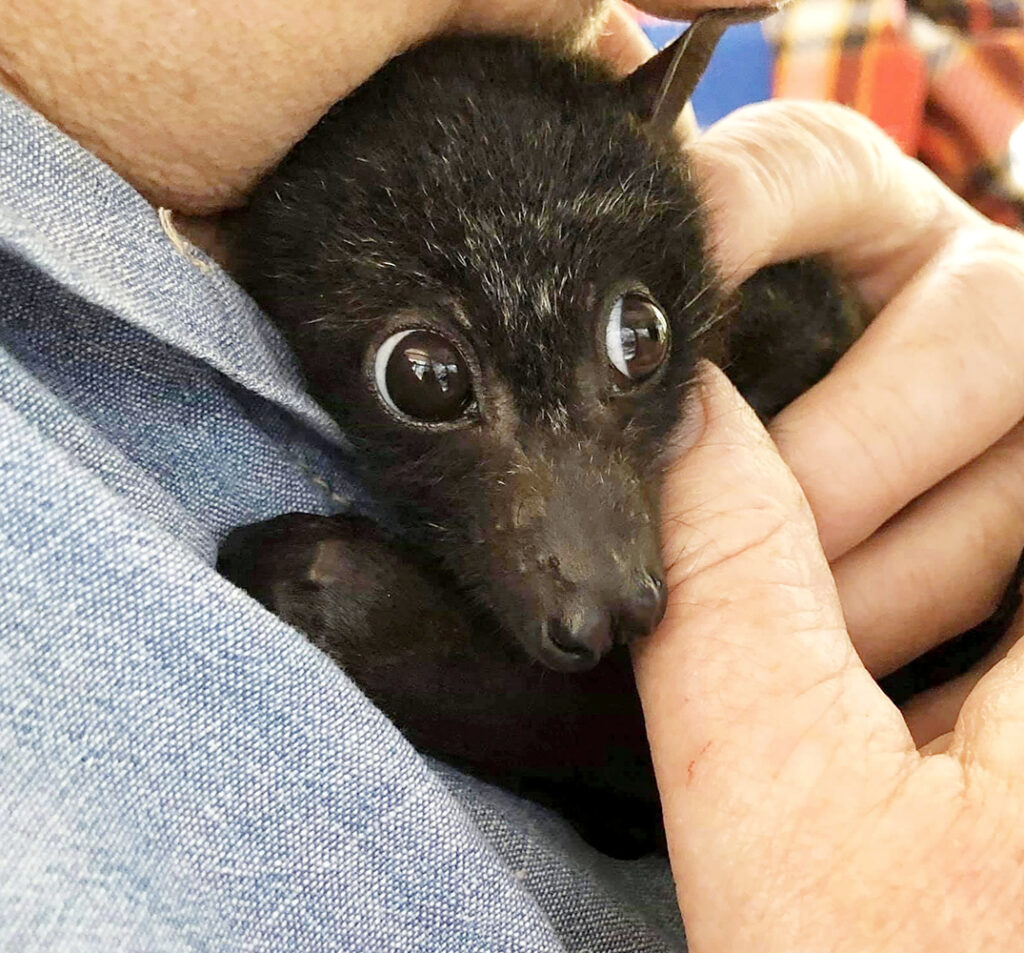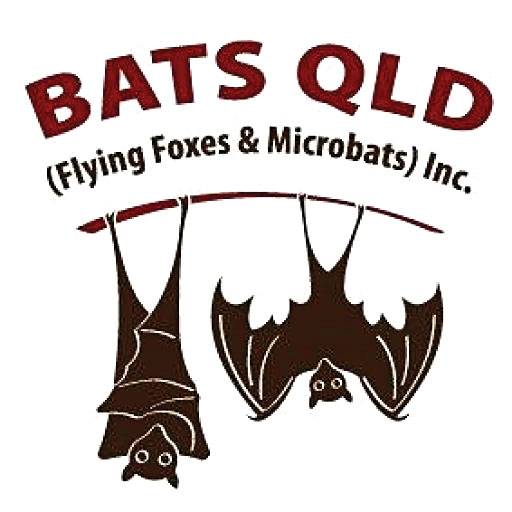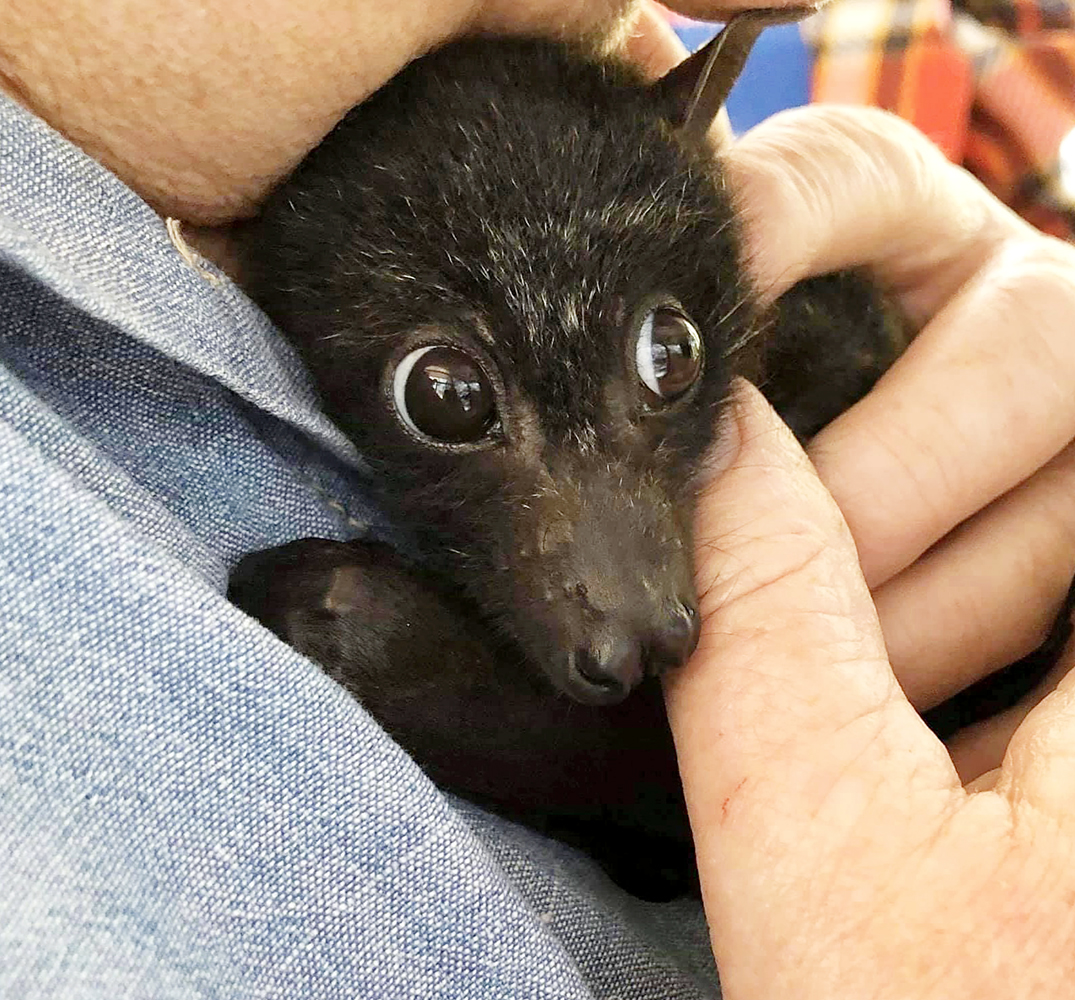Their Loss Will Be Catastrophic

Info Supplied With Thanks To Bats Qld:
Flying Foxes play a key role in coastal forest ecology. Bats are the world’s only flying mammal and Flying Foxes are able to cross pollinate tall coastal forest trees. Almost all hardwood species need Flying Foxes for pollination. Hardwood flowers are only receptive to pollination at night, so the daytime activity of birds and bees does not fertilise the flowers. Flying Foxes fly much further than bees or most birds, so are able to cross-fertilise bushland over great distances each night. It has also been estimated that a single Flying Fox can disperse up to 3000 seeds a night. With increasing urbanisation, more man-made hazards like barbed wire, power lines, domestic animals, cars and roads, and increasing heat events, Flying Fox numbers are declining at an alarming rate. Losing these wonderful animals will have catastrophic consequences to many other of our unique animals, especially tree-dwelling animals like koalas.
Sadly, our hardworking bats are again under siege. Currently we are facing a condition that causes paralysis such that our bats become weak and eventually paralysed. Imagine having an anaesthetic where you can’t move but are aware of everything. That is what the bats in Southeast Queensland are currently going through. Unable to move apart from their eyes, can’t swallow, and can barely breathe. Our wonderful carers are being inundated with these bats and many need intensive care generally only a vet will provide. But because there are so few vets able to provide care for our wonderful bats, our hard working carers are undertaking the task. These bats need fluid therapy to maintain hydration, oxygen, and warmth. If they have pneumonia, they need antibiotics and nebulisers.
Liquids, like saliva accumulate at the back of the throat, but because they can’t swallow, pneumonia can develop so our carers need to clear their airways frequently. Sadly, many won’t survive. While the authorities are trying to identify the toxin causing this problem, whether it be a natural toxin or man-made, we will continue to do our best to help these guys. But with our orphans soon to enter crèche, we need your help to support our carers working flat out to help these guys survive. We need lots of intravenous fluid bags, syringes and needles to go with our nebulisers, incubators, oxygen pumps and fluid pumps. Only a few of our dedicated carers are qualified to use these and they are working around the clock supported by our other dedicated carers. We need your help.
How To Recognise A Bat Needing Help:
• If you see a bat on the ground
• Hanging in the same tree for a few days
• Away from their home trees (bat camp)
• Hanging low in a tree or on a power line
• A snotty nose or bubbles coming from the nose, panting, open mouth breathing or tongue hanging out
• Bats with drooping wings that are not wrapped around their bodies
If you see a bat needing help, please do not touch them, keep pets and children away and call the bats Qld 24/7 hotline
HOW CAN WE HELP?
Ours bats need help and you can support through the Bats Qld go fund me page – just put “Bats Qld go fund me” in your search engine.
FOUND A BAT?
CALL 0447 222 889
By Sherryn Fraser
(Qualified Vet Nurse)

